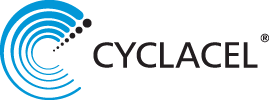Request Demo
Last update 08 May 2025
CDK2
Last update 08 May 2025
Basic Info
Synonyms CDK2, CDKN2, Cell division protein kinase 2 + [4] |
Introduction Serine/threonine-protein kinase involved in the control of the cell cycle; essential for meiosis, but dispensable for mitosis (PubMed:10499802, PubMed:10884347, PubMed:10995386, PubMed:10995387, PubMed:11051553, PubMed:11113184, PubMed:12944431, PubMed:15800615, PubMed:17495531, PubMed:19966300, PubMed:20935635, PubMed:21262353, PubMed:21596315, PubMed:28216226, PubMed:28666995). Phosphorylates CABLES1, CTNNB1, CDK2AP2, ERCC6, NBN, USP37, p53/TP53, NPM1, CDK7, RB1, BRCA2, MYC, NPAT, EZH2 (PubMed:10499802, PubMed:10995386, PubMed:10995387, PubMed:11051553, PubMed:11113184, PubMed:12944431, PubMed:15800615, PubMed:19966300, PubMed:20935635, PubMed:21262353, PubMed:21596315, PubMed:28216226). Triggers duplication of centrosomes and DNA (PubMed:11051553). Acts at the G1-S transition to promote the E2F transcriptional program and the initiation of DNA synthesis, and modulates G2 progression; controls the timing of entry into mitosis/meiosis by controlling the subsequent activation of cyclin B/CDK1 by phosphorylation, and coordinates the activation of cyclin B/CDK1 at the centrosome and in the nucleus (PubMed:18372919, PubMed:19238148, PubMed:19561645). Crucial role in orchestrating a fine balance between cellular proliferation, cell death, and DNA repair in embryonic stem cells (ESCs) (PubMed:18372919, PubMed:19238148, PubMed:19561645). Activity of CDK2 is maximal during S phase and G2; activated by interaction with cyclin E during the early stages of DNA synthesis to permit G1-S transition, and subsequently activated by cyclin A2 (cyclin A1 in germ cells) during the late stages of DNA replication to drive the transition from S phase to mitosis, the G2 phase (PubMed:18372919, PubMed:19238148, PubMed:19561645). EZH2 phosphorylation promotes H3K27me3 maintenance and epigenetic gene silencing (PubMed:20935635). Cyclin E/CDK2 prevents oxidative stress-mediated Ras-induced senescence by phosphorylating MYC (PubMed:19966300). Involved in G1-S phase DNA damage checkpoint that prevents cells with damaged DNA from initiating mitosis; regulates homologous recombination-dependent repair by phosphorylating BRCA2, this phosphorylation is low in S phase when recombination is active, but increases as cells progress towards mitosis (PubMed:15800615, PubMed:20195506, PubMed:21319273). In response to DNA damage, double-strand break repair by homologous recombination a reduction of CDK2-mediated BRCA2 phosphorylation (PubMed:15800615). Involved in regulation of telomere repair by mediating phosphorylation of NBN (PubMed:28216226). Phosphorylation of RB1 disturbs its interaction with E2F1 (PubMed:10499802). NPM1 phosphorylation by cyclin E/CDK2 promotes its dissociates from unduplicated centrosomes, thus initiating centrosome duplication (PubMed:11051553). Cyclin E/CDK2-mediated phosphorylation of NPAT at G1-S transition and until prophase stimulates the NPAT-mediated activation of histone gene transcription during S phase (PubMed:10995386, PubMed:10995387). Required for vitamin D-mediated growth inhibition by being itself inactivated (PubMed:20147522). Involved in the nitric oxide- (NO) mediated signaling in a nitrosylation/activation-dependent manner (PubMed:20079829). USP37 is activated by phosphorylation and thus triggers G1-S transition (PubMed:21596315). CTNNB1 phosphorylation regulates insulin internalization (PubMed:21262353). Phosphorylates FOXP3 and negatively regulates its transcriptional activity and protein stability (By similarity). Phosphorylates ERCC6 which is essential for its chromatin remodeling activity at DNA double-strand breaks (PubMed:29203878). Acts as a regulator of the phosphatidylinositol 3-kinase/protein kinase B signal transduction by mediating phosphorylation of the C-terminus of protein kinase B (PKB/AKT1 and PKB/AKT2), promoting its activation (PubMed:24670654). |
Analysis
Perform a panoramic analysis of this field.
login
or

AI Agents Built for Biopharma Breakthroughs
Accelerate discovery. Empower decisions. Transform outcomes.
Get started for free today!
Accelerate Strategic R&D decision making with Synapse, PatSnap’s AI-powered Connected Innovation Intelligence Platform Built for Life Sciences Professionals.
Start your data trial now!
Synapse data is also accessible to external entities via APIs or data packages. Empower better decisions with the latest in pharmaceutical intelligence.
Bio
Bio Sequences Search & Analysis
Sign up for free
Chemical
Chemical Structures Search & Analysis
Sign up for free





